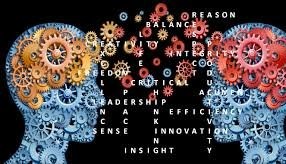Critical thinking is a foundational skill that transcends academic disciplines, empowering individuals to analyze, evaluate, and synthesize information with a discerning perspective. Critical thinking becomes even more essential in the context of humanities courses, which explore human culture, history, philosophy, and art. Humanities education aims to foster an appreciation of human experience and thought complexities, and cultivating critical thinking skills in humanities is central to achieving this goal. This article examines the significance of critical thinking in humanities education, strategies to develop these skills, and the impact on students’ intellectual growth and broader life applications.
The Role of Critical Thinking in the Humanities
Humanities courses often involve interpreting texts, understanding historical contexts, and evaluating philosophical arguments. Critical thinking is not merely about assessing factual accuracy but engaging deeply with diverse perspectives and constructing well-reasoned arguments. The humanities encourage students to question assumptions, explore the subtleties of human experience, and appreciate the nuances of various cultural and historical narratives. Through critical thinking, students learn to:
- Analyze Texts and Arguments: Humanities courses frequently require students to dissect literary works, historical documents, and philosophical texts. Critical thinking enables students to identify underlying themes, assess the validity of arguments, and recognize biases.
- Understand Contexts and Perspectives: Humanities education emphasizes the importance of context. Critical thinking helps students appreciate how historical, cultural, and social contexts influence human thought and behavior.
- Construct Well-Reasoned Arguments: In analyzing and discussing various subjects, students must present coherent arguments supported by evidence. Critical thinking skills help in crafting and articulating these arguments effectively.
- Evaluate Different Perspectives: Exposure to diverse viewpoints is a hallmark of humanities education. Critical thinking allows students to engage with and evaluate these perspectives, fostering a more comprehensive understanding of complex issues.
Strategies for Developing Critical Thinking Skills
- Encourage Active Reading and Engagement
Active reading involves interacting with the text rather than passively consuming information. In humanities courses, this means annotating texts, questioning the author’s assumptions, and considering the implications of their arguments. Encouraging students to engage with texts actively helps develop their ability to think critically about content and context.
Example: When studying a novel, students might note how the author’s background influences the narrative or how historical events shape the characters’ experiences. Such engagement fosters a deeper understanding and critical analysis. - Facilitate Socratic Seminars
Socratic seminars are discussions based on questioning and dialogue rather than lecture-based teaching. By engaging in these seminars, students practice articulating their thoughts, listening to others, and questioning various viewpoints. This method nurtures critical thinking by promoting active discussion and reflective questioning.
Example: In a philosophy class, a Socratic seminar might involve discussing ethical dilemmas, where students must critically evaluate different moral theories and justify their positions. - Integrate Comparative Analysis
Comparative analysis involves examining similarities and differences between texts, cultures, or historical periods. This approach encourages students to think critically about how different contexts influence perspectives and interpretations.
Example: Comparing two literary works from different cultures can reveal insights into how cultural values shape narratives and themes. This exercise helps students understand the relativity of perspectives and enhances critical analysis skills. - Promote Argumentation and Debate
Debates and argumentative writing assignments require students to construct and defend positions on various issues. This process helps develop critical thinking by challenging students to support their views with evidence and consider counterarguments.
Example: In a history course, students might debate the causes and consequences of a major historical event, requiring them to analyze various sources and present well-supported arguments. - Utilize Reflective Writing
Reflective writing encourages students to think deeply about their learning experiences and the development of their ideas. By reflecting on their thought processes, students become more aware of their reasoning and biases, which enhances critical thinking.
Example: Journals or essays where students reflect on their understanding of a philosophical concept or historical event can help them analyze their thought processes and refine their arguments. - Incorporate Interdisciplinary Approaches
Humanities courses often benefit from interdisciplinary approaches that draw on insights from various fields. Integrating perspectives from disciplines such as sociology, psychology, or political science can enrich students’ understanding and critical analysis.
Example: Analyzing a piece of literature through the lens of psychological theory can provide deeper insights into character motivations and thematic elements, fostering a more nuanced critical perspective.
Impact on Intellectual Growth and Life Applications
Developing critical thinking skills in humanities courses has far-reaching effects beyond academic achievement. These skills contribute significantly to intellectual growth and have practical applications in various aspects of life.
- Enhanced Analytical Abilities
Critical thinking in humanities courses sharpens students’ analytical skills, enabling them to approach complex problems with a structured and thoughtful mindset. This ability to analyze and evaluate information critically is valuable in numerous professional fields, including law, business, and education. - Improved Communication Skills
Articulating well-reasoned arguments and engaging in thoughtful discussions enhance communication skills. The ability to present ideas clearly and persuasively is crucial in professional settings, where effective communication is key to success. - Greater Cultural Awareness
Humanities education fosters an appreciation for diverse perspectives and cultural contexts. This awareness enhances students’ ability to navigate and interact in a multicultural world, promoting empathy and understanding. - Informed Decision-Making
Critical thinking skills enable individuals to make informed decisions by evaluating evidence and considering multiple viewpoints. This ability to assess information critically is essential for making sound choices in both personal and professional contexts. - Lifelong Learning and Curiosity
Cultivating critical thinking nurtures a lifelong curiosity and a commitment to learning. Individuals who think critically are more likely to seek out new knowledge, question assumptions, and engage with ongoing intellectual and cultural developments.
Strategies for Educators to Promote Critical Thinking
Educators play a crucial role in fostering critical thinking within humanities courses. To effectively develop these skills, instructors can implement a variety of strategies tailored to enhance students’ analytical abilities and deepen their engagement with the material.
- Design Thought-Provoking Assignments
Assignments that challenge students to think critically are essential. These assignments might include analytical essays, case studies, or projects that require students to apply theoretical concepts to real-world scenarios. Designing tasks that demand rigorous analysis and evidence-based arguments by educators can encourage students to practice and refine their critical thinking skills.
Example: An assignment where students analyze a historical event through multiple perspectives, such as political, economic, and social lenses, encourages them to consider different factors and construct a nuanced understanding of the event. - Encourage Peer Review and Collaboration
Peer review processes and collaborative projects can help students develop critical thinking skills by exposing them to diverse viewpoints and constructive criticism. Working in groups allows students to discuss and debate ideas. This leads to a deeper understanding of the material and enhances their ability to articulate and defend their arguments.
Example: In a literature course, students might collaborate on analyzing a novel and then review each other’s interpretations. This practice not only exposes them to different analytical approaches but also helps them refine their thinking through peer feedback. - Incorporate Technology and Multimedia
Utilizing technology and multimedia resources can enrich humanities education and promote critical thinking. Digital tools such as online archives, interactive simulations, and multimedia presentations can provide students with a broader range of perspectives and sources. Integrating these resources into coursework can help students engage with the material in innovative ways and develop a more comprehensive understanding.
Example: Incorporating virtual museum tours or interactive historical maps into lessons can offer students a more immersive experience and enhance their ability to analyze historical contexts and cultural artifacts. - Foster a Growth Mindset
Encouraging a growth mindset—believing that abilities and intelligence can be developed through effort and learning—can help students approach challenges with resilience and openness. Educators can promote this mindset by providing positive reinforcement, emphasizing the value of perseverance, and framing challenges as opportunities for growth.
Example: When students struggle with complex arguments or concepts, educators can emphasize the importance of persistence and iterative learning, reinforcing that critical thinking skills improve with practice and reflection. - Incorporate Real-World Problems
Connecting course material to real-world issues can make critical thinking more relevant and engaging for students. By addressing contemporary or historical problems, educators can help students see the practical application of their analytical skills and encourage them to consider the implications of their arguments in broader contexts.
Example: In a philosophy course, students might analyze ethical dilemmas related to modern technology, such as artificial intelligence or genetic modification, exploring the implications of different ethical theories on current issues. - Promote Self-Assessment and Reflection
Encouraging students to regularly assess their thinking and learning processes can help them develop greater self-awareness and critical insight. Reflective practices, such as journaling or self-assessment exercises, allow students to evaluate their progress, identify areas for improvement, and refine their analytical skills.
Example: After completing a major project, students might write a reflection on their research process, analyzing the strengths and weaknesses of their arguments and considering how they might approach similar tasks differently in the future.
Impact on Academic and Professional Success
The development of critical thinking skills in humanities courses significantly impacts students’ academic and professional success. These skills not only enhance students’ ability to excel in their studies but also provide valuable tools for navigating their future careers.
- Academic Excellence
Students who develop strong critical thinking skills are better equipped to excel academically. Their ability to analyze complex texts, construct well-supported arguments, and engage with diverse perspectives contribute to higher-quality research and writing. This academic rigor often translates into better performance on exams and assignments. - Career Readiness
Critical thinking is a highly valued skill in the professional world. Employers seek individuals who can analyze information, solve problems, and make informed decisions. The ability to think critically and communicate effectively is essential in a wide range of fields, from business and law to education and public service.
Example: In a business setting, employees who can critically evaluate market trends, assess the potential impact of strategic decisions, and present well-reasoned recommendations are more likely to contribute to their organization’s success. - Informed Citizenship
Critical thinking also plays a crucial role in fostering informed and engaged citizenship. Individuals who can analyze and evaluate information critically are better equipped to participate in democratic processes, understand societal issues and contribute to public discourse.
Example: Informed citizens are more likely to engage in meaningful discussions about policy issues, vote based on well-considered opinions, and advocate for causes with a clear understanding of their implications.
Addressing Diversity and Inclusivity
In developing critical thinking skills, educators need to consider issues of diversity and inclusivity. Humanities courses often explore a wide range of cultural and historical perspectives, and incorporating diverse voices and viewpoints is crucial for fostering a comprehensive understanding of the material.
- Include Diverse Perspectives
Incorporating a range of perspectives in course materials and discussions helps students appreciate the richness of human experience and the complexity of various issues. This inclusivity can enhance students’ critical thinking by challenging them to consider different viewpoints and understand the impact of cultural and historical contexts.
Example: When studying literature, including works from diverse authors and traditions can provide students with a broader understanding of different cultural and societal perspectives. - Create an Inclusive Learning Environment
An inclusive learning environment encourages all students to participate and share their perspectives. Educators can create this environment by promoting respectful dialogue, acknowledging diverse viewpoints, and addressing any biases or assumptions that may arise in discussions.
Example: Setting ground rules for respectful discussion and providing opportunities for all students to contribute can help create a supportive and inclusive classroom atmosphere.
Challenges and Considerations
While developing critical thinking skills in humanities courses is highly beneficial, it is not without challenges. Some of the key challenges include:
- Resistance to Uncertainty
Critical thinking often involves grappling with ambiguity and uncertainty. Some students may find it challenging to accept that there may not be a single “correct” answer to complex questions. Educators can address this by emphasizing the value of exploring multiple perspectives and understanding the nuances of different arguments. - Balancing Depth and Breadth
Humanities courses cover a wide range of topics, and it can be challenging to balance depth and breadth. Educators need to design curricula that allow students to engage deeply with specific issues while also providing a broad understanding of relevant contexts and concepts. - Evaluating Critical Thinking
Assessing critical thinking can be difficult, as it involves evaluating not just the content but also the quality of reasoning and argumentation. Educators should develop clear criteria for assessing critical thinking skills and provide constructive feedback to help students improve.
Conclusion
Developing critical thinking skills in humanities courses is essential for fostering intellectual growth and preparing students for diverse challenges in their academic and professional lives. By encouraging active engagement with texts, facilitating thoughtful discussions, and integrating interdisciplinary approaches, educators can cultivate these vital skills. The impact of critical thinking extends beyond the classroom, enhancing analytical abilities, communication skills, and cultural awareness. Despite the challenges, the benefits of critical thinking are profound, equipping students with the tools to navigate complexity, make informed decisions, and pursue lifelong learning. Through dedicated effort and thoughtful instruction, humanities education can profoundly shape students’ intellectual and personal development, preparing them to engage thoughtfully with the world around them.










